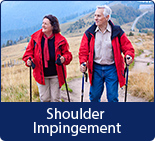ASES-recognized Shoulder and Elbow Fellowship Program
Duration: 1 year (August 1 to July 31)
Number of Fellows: 1 fellow per year
Directors: Carl “Scott” Humphrey, MD
Co-Directors: Michael Curtin, MD; David Zamorano, MD
Stipend: $68,099/year
Vacation Allotment: 2 weeks
Fellowship Sites:
Humphrey Shoulder Clinic,
Eagle, ID
Cornerstone Orthopaedic Trauma Associates,
Meridian, ID
St. Luke’s Regional Medical Center,
Meridian, ID
Veterans Administration Medical Center,
Boise, ID
Millennium Surgery Center,
Meridian, ID
St. Alphonsus Regional Medical Center,
Boise, ID
Fellowship Description:
This one-year fellowship program is recognized by the American Shoulder and Elbow Surgeons (ASES). It is sponsored by the Idaho Shoulder and Elbow Research Foundation (ISERF), a not-for-profit entity dedicated to improving the understanding of shoulder and elbow disorders and treatments. Based in the beautiful Boise, Idaho region, the program offers hands-on learning and mentorship in the private practice setting. Fellows are under the tutelage of Dr. Scott Humphrey, Dr. Michael Curtin, and Dr. David Zamorano. The fellow will gain exposure to the full range of shoulder and elbow pathologies and treatment options, including non-operative management, primary and revision arthroplasty surgery, and arthroscopic as well as open soft-tissue procedures. In a typical year the fellow will participate in about 400 cases, either as surgeon or first assistant.
The fellow will conduct medical research in order to improve and promote the understanding of shoulder and elbow disorders and treatments. The fellow will enroll patients who are undergoing shoulder and elbow surgery procedures into various studies, then help track and report clinical outcomes. He/she will conduct various aspects of research while participating in patient care through outpatient clinics, surgery, and inpatient management. The fellow will improve his/her understanding of shoulder pathology through research, paper and presentation preparation, didactic interaction, and conference attendance. The fellow is expected to complete and submit for publication at least one publication-quality research project during the fellowship. Opportunities for both basic science and clinical research are available.
Through regular educational conferences, pre- and post-operative conferences, as well as morbidity and mortality conferences and journal club, the fellow should have by the end of the fellowship year a strong foundation regarding:
- Shoulder and elbow anatomy and biomechanics
- The basic science of soft tissue injury and healing
- Pathological conditions of the shoulder and upper extremity
- The importance of taking a thorough medical history
- Performance of a proper physical exam
- Interpreting imaging and other diagnostic tests
- Creating an appropriate differential diagnosis
- Understanding both non-operative as well as surgical treatment options
- Arthroscopic and open surgical techniques
- Management of surgical complications
- Anatomical variations that do not necessarily represent true pathology
- The importance of interpersonal skills for patient care
- The process of medical research
- The economics of a private shoulder surgery practice
Shoulder Curriculum
ISERF fellows will be expected to work through the ASES Curriculum Guide for Treatment of Shoulder Injury and the ASES Elbow Curriculum. These guides have been developed by the ASES Education Committee to be used as a reference source by fellows in order to gain a basic foundation of information on evaluation and treatment of shoulder and elbow injury and disease. The fellow will review and discuss various aspects of the curriculum with the attending surgeons over the course of the one-year fellowship.
Fellow, Faculty, and Program Evaluation
In an effort to continuously improve the fellowship experience, ISERF conducts scheduled evaluations of fellows, faculty, and the program as follows:
- A confidential evaluation of each fellow will be conducted on a semi-annual basis, using the ISERF Fellow Evaluation Form.
- Each fellow will evaluate the individual faculty member’s teaching abilities, commitment to the educational program, professionalism, and commitment to research on an annual basis using the ISERF Faculty Evaluation Form.
- Both the fellow and the fellowship director will complete an annual evaluation of the program using the ISERF Annual Program Evaluation Form.
The completed evaluation forms will be maintained as part of the program’s permanent record.
Current Openings
Applicants must have completed or be in the process of completing an orthopaedic surgery residency, as well as be qualified to obtain a physician’s license in the State of Idaho. The program is unable to sponsor J-1 or H1-B visas; therefore, applicants must be USA citizens.
Please visit the ASES website for more information regarding the fellowship match. Qualified candidates may contact Dr. Humphrey (humphrey@boiseshoulderclinic.net) for more information.
- The Foundation’s mission is to promote education regarding shoulder disorders and treatments, train surgeons to diagnose and appropriately manage difficult shoulder conditions, and contribute to musculoskeletal research.








